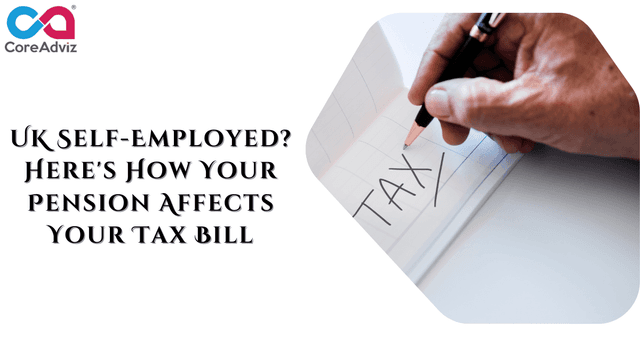
HomeBlog Electric Car Tax Benefits for Self-Employed Business Owners
Electric Car Tax Benefits for Self-Employed Business Owners
Kausik MukherjeeBusiness, Start-up New Business
There have been big changes to the UK’s electric vehicle (EV) tax system, and every self-employed business owner needs to know about them. This guide talks about the current tax breaks and important changes that are coming up, like the big road tax announcement for 2028.
Tax Benefits Right Now (2026)
Capital Allowances
People who own their own businesses can get 100% First Year Allowances (FYA) on new electric cars they buy for work. This means that in the first year, you can deduct the full cost of the vehicle from your profits, which will lower your taxable income by a lot. You can still get an 18% Writing Down Allowance every year if your EV doesn’t qualify for FYA because electric cars are in the main rate pool.
Rates for Benefit-in-Kind (BIK)
The BIK rate for pure electric vehicles is only 3% for the tax year 2025–26. This is much lower than the rate for petrol or diesel vehicles. These good rates are guaranteed until 2030, which gives businesses a long-term sense of security when making plans.
Mileage and VAT
Business owners can get 45p for every mile they drive for business for the first 10,000 miles. After that, they can get 25p for every mile. People who are registered for VAT can get back the VAT they paid on electric vehicles (if they are used 100% for business) and on the cost of charging electric vehicles at their business.
What has changed about road tax?
Changes that went into effect in April 2025
In April 2025, the VED exemption for electric cars came to an end. All electric vehicles now have to pay road tax:
EVs that are registered after April 1, 2025: £10 in the first year, then £195 every year after that £195 a year for EVs registered from 2017 to 2025
EVs that were registered from 2001 to 2017: 20 pounds a year
Supplement for Expensive Cars (April 2026)
The good news is that the threshold for the expensive car supplement has been raised just for EVs. The limit goes up from £40,000 to £50,000 on April 1, 2026. Petrol and diesel prices stay the same at £40,000.
What this means is Electric vehicles that cost less than £50,000 don’t have to pay the extra £425 each year.
For years 2 to 6, EVs that cost more than £50,000 pay £195 plus £425, which is £620 a year.
Big Change: 2028 Pay-Per-Mile Tax (eVED)
The News
In November 2025, the government announced the Electric Vehicle Excise Duty (eVED), which will start in April 2028 and be based on how many miles you drive. This is the most important change in how EVs are taxed.
Important Information:
- Electric Vehicles with Batteries: 3p for every mile
- Plug-in hybrids cost 1.5p per mile.
- Not a replacement for standard VED, but an addition
- Inflation adjustments every year starting in 2029
How It Will Work
When you get your VED again in 2028:
Tell us what your current odometer reading is.
- Make a guess about how many miles you drive each year.
- Pay for the estimated mileage plus the standard VED (£195)
- Mileage checked at the end of the year using MOT readings
- Any overpayment or underpayment will be settled at the next renewal.
Ways to pay: Direct Debit can be paid once a year, twice a year, or once a month.
Important: No GPS tracking or logging of trips—only odometer readings at MOT tests.
Examples of Cost Effects
Average business driver (8,000 miles per year): eVED: £240 (8,000 × £0.03)
Standard VED: £195 Total from 2028: £435 a year
For a driver who drives 15,000 miles a year, eVED is £450 (15,000 × £0.03).
Standard VED: £195; Total from 2028: £645 per year
Still less expensive than petrol
EVs are still a lot cheaper than eVED:
Comparison by mile:
Petrol costs about 15p (fuel) plus 6p (fuel duty), which is 21p per mile.
EV from 2028: 2p for charging and 3p for eVED, which is 5p per mile.
Savings: 76% less per mile
Exemptions
Electric vans, motorcycles, buses, and HGVs are not subject to eVED at launch, which is important for businesses that run fleets.
Business Owners’ Strategic Planning
When to Buy
Purchasing in 2026–2027:
Set the VED rate at £195 a year
Get a £50,000 supplement threshold starting in April 2026.
Have fun for 2–3 years before eVED starts.
Most leases that last 3 to 4 years will end before or soon after April 2028.
Buying after April 2028:
Include eVED in your calculations of total cost
Overall, EVs are still 50–70% cheaper than petrol or diesel.
Cost Advantage
Even with new taxes, EVs still save you a lot of money:
Benefits that keep happening:
100% Allowances for the First Year
3% BIK rates until 2030
Less expensive upkeep
Exemption from the congestion charge (£15 per day in London)
No ULEZ fee
Charging at home costs about 2p per mile.
Costs starting in 2028:
eVED is 3p per mile, which is between £240 and £450 a year.
Standard VED is £195. The net result is: Still, the total running costs are 50–70% lower than those of petrol and diesel cars.
More Benefits
Clean Air Zones and Traffic Jam Zones
EVs still don’t have to:
London Charge for congestion (£15 off per day)
Charges for ULEZ
Other fees for Clean Air Zones across the country
Exemptions alone can save businesses in these areas thousands of dollars a year, which is much more than the cost of eVED.
Charging at Work Scheme
The government will pay up to £350 for each socket (up to 40 sockets) to install EV charging points at business locations. This puts your business in a good place for the switch to electric vehicles and is a great perk for employees.
Grant for Electric Cars
The government put an extra £1.3 billion into the Electric Car Grant program (through 2029–30), which gives discounts of up to £3,750 on new electric vehicles that qualify.
Requirements for Keeping Records
To get the most tax benefits and make sure you follow the rules:
Keep detailed logs of your mileage (very important for eVED starting in 2028)
Save all of your charging receipts so you can get your VAT back.
Write down the difference between business and personal use.
Conclusion
The UK’s EV tax system is changing. For example, road tax has been in place since April 2025, and pay-per-mile tax will be in place by April 2028. However, electric vehicles are still a great way for self-employed business owners to save money.


